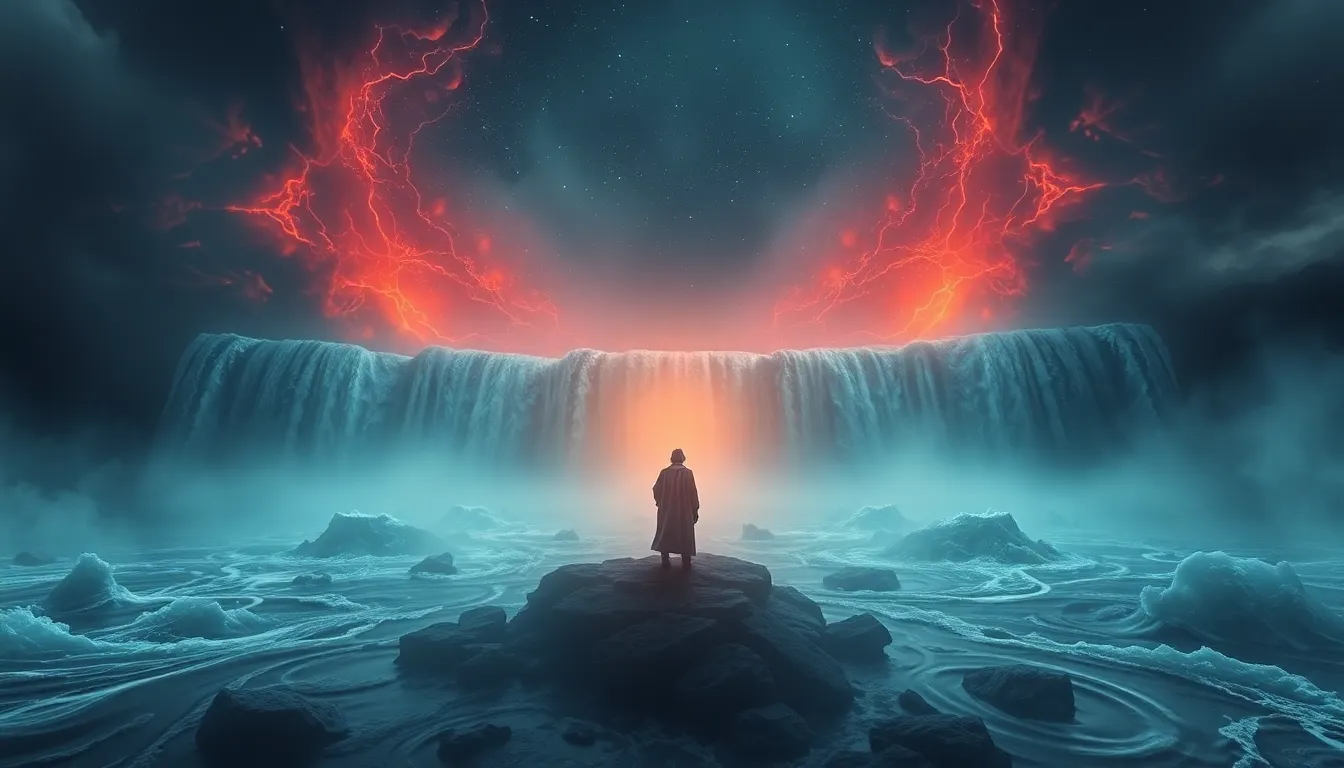The Flood and the Search for Humanity: Myths That Connect Us All
Introduction: The Universality of Flood Myths
Throughout history, flood myths have emerged across diverse cultures, echoing the shared human experience of catastrophe and survival. These narratives, often depicting a cataclysmic deluge, serve as poignant reminders of our vulnerability in the face of nature’s might. From the ancient civilizations of Mesopotamia to the indigenous cultures of the Americas, these stories encapsulate not only the physical destruction of floods but also the profound emotional and spiritual journeys that accompany such events.
The significance of flood myths extends beyond mere storytelling; they provide insight into human history, revealing how different societies interpret and respond to their environments. By examining these myths, we can uncover the threads of connection that weave together the fabric of human experience, highlighting our collective fears, hopes, and moral dilemmas.
The Great Deluge: A Common Narrative
The archetype of a great flood is a recurring theme in the mythology of various civilizations. One of the most well-known flood myths is the biblical account of Noah’s Ark, where a righteous man is chosen by God to build an ark and save his family along with pairs of every animal before a devastating flood wipes out humanity.
Similarly, in the Epic of Gilgamesh, an ancient Mesopotamian narrative, the hero Utnapishtim is warned by the god Ea of an impending flood meant to cleanse the world of human wickedness. He builds a large boat to preserve life, paralleling the story of Noah in striking ways.
In Hindu mythology, the flood narrative is found in the tale of Manu, who is forewarned by the fish deity Matsya of an impending deluge. Manu builds a ship to survive the flood, which is sent to rescue the seeds of all life. These stories demonstrate a common motif of divine warning, moral judgment, and the preservation of life amidst chaos.
Cultural Context: Flood Myths Around the World
The geographical and environmental contexts of flood myths significantly shape their narratives. In Mesopotamia, the Tigris and Euphrates rivers often overflowed, leading to the development of flood myths that reflect the region’s reliance on agriculture and the unpredictability of nature.
In the Indigenous cultures of the Americas, such as the Ojibwe and Navajo, flood myths often symbolize the cleansing of the earth and the rebirth of nature. These narratives emphasize the interconnectedness of humans with the natural world, highlighting the importance of harmony and respect for the environment.
In Europe, the flood myth of Deucalion in Greek mythology tells of a great flood sent by Zeus to destroy mankind, reflecting themes of retribution and survival. These diverse flood myths illustrate how different cultures interpret natural disasters through their own lenses, often embedding moral and ethical teachings within the narratives.
Symbolism of the Flood: Purification and Renewal
Floods in mythology often symbolize both destruction and a chance for renewal. The deluge serves as a cleansing force, washing away corruption and sin, allowing for a rebirth of purity and virtue. In many myths, water represents life, death, and transformation.
- Destruction: Floods obliterate the old ways of life, challenging the status quo.
- Purification: The waters cleanse the earth of moral decay and human failings.
- Renewal: After the flood, new life emerges, symbolizing hope and the possibility of a fresh start.
This duality of destruction and renewal is central to understanding the transformative power of floods in mythological narratives. Water, often seen as a life-giving force, also embodies chaos and unpredictability, reflecting the complexities of human existence.
Lessons from the Flood: Morality and Human Nature
Flood myths are rich with moral lessons that reflect human values and societal norms. They often convey warnings about hubris, ethical conduct, and the need for humility before nature’s forces. The moral undertones of these narratives remind us of the consequences of human actions and the importance of living in harmony with the world.
Key moral lessons found in flood myths include:
- The importance of righteousness and moral integrity, as seen in the stories of Noah and Utnapishtim.
- The consequences of societal corruption and the need for reform.
- The value of resilience and hope in the face of adversity.
These stories resonate across cultures, highlighting shared human concerns and the timeless struggle for ethical living amidst chaos.
The Role of Heroes and Survivors in Flood Narratives
The archetype of the hero or survivor is a pivotal element in flood myths. These characters often embark on journeys that test their strength, wisdom, and endurance. Their experiences serve as metaphors for human resilience and the capacity to overcome adversity.
For instance, Noah’s unwavering faith and Utnapishtim’s resourcefulness exemplify the virtues of courage and determination in the face of overwhelming odds. Through their journeys, these heroes become symbols of hope and perseverance, inspiring future generations to confront their challenges with bravery.
Archaeological and Historical Evidence of Flood Events
Archaeological findings and historical accounts suggest that many flood myths may have roots in actual catastrophic events. Geological evidence of significant flooding in ancient civilizations, such as the flooding of the Black Sea or the inundations of the Tigris and Euphrates, supports the idea that these myths were born from real fears and experiences.
The intersection of myth, archaeology, and environmental history allows us to trace the origins of these stories, providing a deeper understanding of how humans have interpreted natural disasters throughout time.
Psychological Interpretations: Flood Myths as Collective Memory
From a psychological perspective, flood myths can be seen as manifestations of collective memory. Carl Jung’s theory of the collective unconscious suggests that these narratives resonate universally because they tap into shared human experiences and archetypes.
Flood myths often reflect deep-seated fears of loss, chaos, and the unknown, serving as a means for societies to process trauma and catastrophe. By engaging with these stories, cultures can reinforce their identities and values, fostering a sense of belonging and continuity.
Modern Reflections: Floods in Contemporary Society
In today’s world, the themes of flood myths resonate in the context of climate change and environmental disasters. The increasing frequency of natural disasters echoes the ancient narratives of destruction and survival, prompting societies to reflect on their relationship with nature.
Contemporary issues such as rising sea levels and extreme weather events compel us to revisit the lessons embedded in flood myths, urging us to consider our responsibility towards the environment and the future of humanity.
Conclusion: The Enduring Power of Flood Myths
The exploration of flood myths reveals not only the universality of human experiences but also the enduring power of storytelling to connect us across cultures and time. These narratives remind us of our shared vulnerabilities and the moral lessons that arise from facing adversity.
As we navigate the complexities of modern life, the tales of floods and survival beckon us to recognize the connections that bind us as a species. By celebrating these stories, we can foster a deeper understanding of our humanity and the collective journey we share on this planet.



